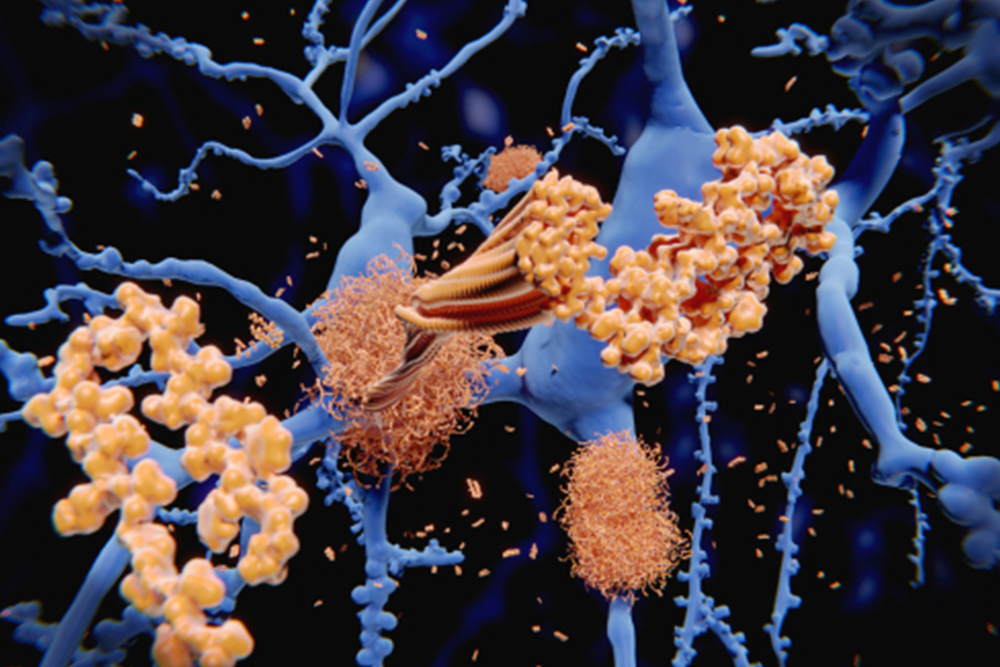Gene Therapy: A Promising Frontier in Alzheimer’s Treatment and Disease Progression

Alzheimer’s disease (AD) remains a significant challenge due to its complex pathology and limited effectiveness of current treatments. Recent advances in gene therapy offer promising avenues for addressing AD by targeting its root causes. Studies highlight the role of genetic mutations, such as those in the PSEN-1, PSEN-2, and APP genes, in familial AD, as well as mutations in the tau and APO-E genes, which contribute to amyloid accumulation, tau hyperphosphorylation, and neurodegeneration.
Saliva Shows Promise as a Non-Invasive Diagnostic Tool for Alzheimer’s Disease

Alzheimer’s disease (AD) is a prevalent neurodegenerative condition affecting millions worldwide, with projections indicating that the number of dementia cases could triple by 2050. Despite extensive research, no curative treatment exists, and current efforts focus on prevention and risk mitigation.
The Gut Microbiota and Alzheimer’s Disease

Alzheimer’s disease (AD) is a progressive neurodegenerative disorder characterized by cognitive impairments that affect memory, decision-making, communication, and other aspects of daily life. The disease is marked by the accumulation of amyloid-beta plaques and tau neurofibrillary tangles, leading to inflammation and cognitive decline. Recent studies suggest that the gut microbiota-brain axis may provide insights into AD’s onset and progression, with research showing that individuals with AD and mild cognitive impairment (MCI) have a lower diversity of gut microbiota compared with healthy individuals.
Promising Alzheimer’s Disease Treatments: Varied Results in Key Drug Trials

Recent randomized clinical trials have focused on three agents aimed at treating early Alzheimer’s disease (AD), particularly with donanemab, aducanumab, and lecanemab. These trials were primarily centered around their ability to reduce amyloid deposition as indicated by positron emission tomography (PET) imaging. Donanemab’s trial, TRAILBLAZER-ALZ, demonstrated a notable reduction in amyloid levels and a marginal improvement in the Integrated Alzheimer’s Disease Rating Scale, though this did not significantly impact most secondary cognitive measures.
Progress in Alzheimer’s Disease: Amyloid Hypothesis and New Immunotherapies

Authors of this comprehensive analysis discuss the amyloid cascade hypothesis in Alzheimer’s disease (AD), which posits that the accumulation of amyloid-β (Aβ) is a key early event leading to neurodegeneration. Evidence supporting the amyloid hypothesis includes the neurotoxic effects of various amyloid species and the high risk of cognitive decline in individuals with significant brain Aβ burden. The neurotoxicity of these amyloid species has been extensively demonstrated, including their role in instigating tau pathology, synaptic deterioration, and various cellular stresses.
Alzheimer’s Disease Treatment Breakthroughs: Emerging Therapies and Pathology Insights

This comprehensive analysis discusses Alzheimer’s disease (AD), focusing on its growing prevalence, underlying pathologies, and current treatment strategies. The review highlights significant advances in AD therapies, particularly disease-modifying therapies (DMTs). Authors note the FDA’s conditional approval of aducanumab and lecanemab, monoclonal antibodies targeting amyloid plaques, marking a new era in AD treatment. Other therapeutic approaches include a focus on tau protein pathology, immunotherapy, and small molecule drugs. Emerging strategies involve targeting neuroinflammation and insulin resistance, as well as innovative approaches like stem cell therapy.
Global Study Highlights Cultural and Educational Impact on Alzheimer’s Disease Research and Understanding

This review provides an in-depth exploration of Alzheimer’s disease (AD) in a global context, emphasizing the need for a cross-cultural neuropsychological perspective. The study underscores the critical role of cultural variables in understanding and assessing neurological disorders. It also highlights the importance of considering language, country of origin, and race in cognitive neuroscience and critically examines the historical and scientific application of race in research.
ALZpath Blood Test Proves Effective in Alzheimer’s Diagnosis, Enhances Anti-Amyloid Treatment Screening

A recent study highlighted the effectiveness of a blood test, known as the “ALZpath pTau217 test,” developed by ALZpath, in diagnosing Alzheimer’s disease (AD). This test detects a specific form of the tau protein in the blood, indicating the presence of amyloid plaques in the brain, which are a key marker of AD.
Systematic Review Highlights Alzheimer’s Disease as Top Neurodegenerative Disease

Authors of a comprehensive systematic review focused on Alzheimer’s disease (AD) and its impact over the last decade highlight its status as the most common neurodegenerative disease globally. Drawing from databases like Embase, Medline, and the Cochrane Library, the review considered observational studies from various countries that reported on incidence, prevalence, comorbidities, and outcomes related to AD. These outcomes included aspects of disability and mortality/life expectancy in individuals with mild cognitive impairment (MCI) due to AD, or those with mild, moderate, or severe AD dementia.

